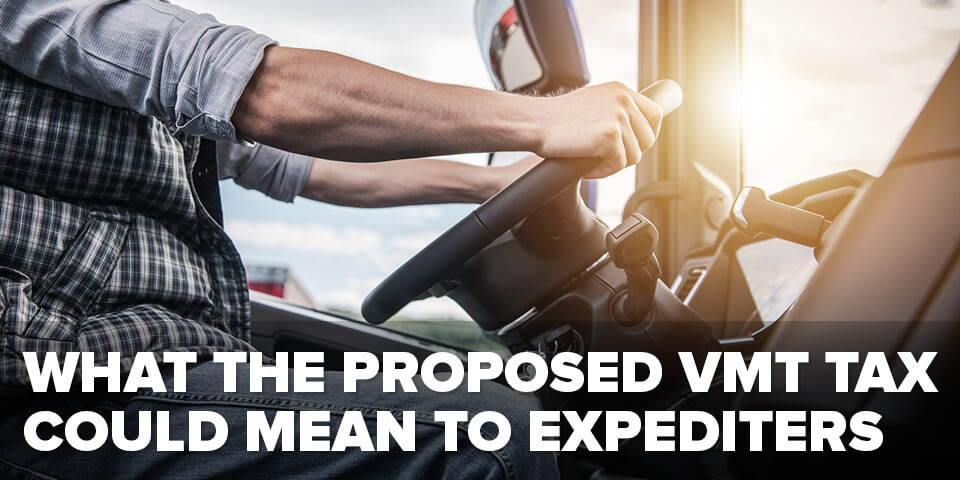Dollars & Sense

What a Proposed VMT Tax Could Mean to Expediters
In a recent CNBC interview, Transportation Secretary Pete Buttigieg said he was open to the idea of a national vehicle miles traveled (VMT) tax to help fund the Biden Administration’s $2 trillion infrastructure plan.
The VMT tax would charge drivers a penny or two (or whatever the amount will be) for each mile driven, replacing the current federal fuel tax at 18.4 cents per gallon, which hasn’t increased since 1993.
So, what does this proposed change mean for you as an expediter?
The VMT tax would change how much you’re taxed and how you pay it. The federal fuel tax is charged to fuel wholesalers, which gets passed to retailers and ultimately to you. But you don’t have to manage the process for keeping track of how much tax you owe and making those payments.
The federal fuel tax is baked into the price you pay at the pump. You don’t have to think about it.
But the VMT tax would charge you - not the fuel wholesaler - for each mile driven. As you can imagine, that would require some work on your end in record-keeping and processing tax payments. And it will likely require investing in approved hardware and software to track mileage, determine the balance due and pay the tax.
Why a VMT tax?
If shifting the tax collection burden from a couple of hundred fuel wholesalers nationwide to millions of individual drivers would increase complexity and cost compared to the current system, why make the change?
Proponents of the VMT tax say that the trend toward electric vehicles is the reason.
After all, most major automakers have recently announced their intention to go all-electric - and stop selling gasoline and diesel-powered vehicles - by the mid-2030s.
And as fossil fuel demand plummets, so would tax revenues from the current system. That means less money to fund national infrastructure projects to build and repair roads, bridges and so forth.
So, the VMT would be a means to collect tax revenue from all vehicles, not just ones powered by fossil fuels, expanding the tax base.
What’s the downside to the AMT tax?
The biggest downside is the administration and collection cost. A recent report by the American Transportation Research Institute (ATRI) found that replacing the federal fuel tax with a VMT tax assessed on 272 million private vehicles could result in collection costs of more than $20 billion annually – or 300 times higher than the federal fuel tax.
The report also found that hardware costs alone would have an initial price tag of $13.6 billion and require ongoing replacement, telecommunications costs at approximately $13 billion annually. Account administration would be an additional $4.3 billion each year.
“With policymakers preparing to lay out a vision for the future of America’s infrastructure, ATRI’s analysis could not come at a more critical time,” American Trucking Associations (ATA) president and CEO Chris Spear said in the press release announcing the report’s findings. “Most experts agree that some sort of VMT system is a part of that future, and ATRI’s report makes clear that implementing it will take thoughtful leadership, cooperation from stakeholders and a strong plan to transition away from current funding streams.”
The AMT tax also faces opposition from environmental advocates who believe the new fees could slow electric vehicle sales growth.
What’s next?
Most industry experts agree that a change in tax collection is needed to help fund national infrastructure projects. But what that change will ultimately look like remains to be seen.
How will they address the complexity and cost concerns?
Watch this space in the coming weeks and months as Congress discusses and debates the $3 trillion infrastructure bill - and how they plan to fund it. There could be significant ramifications to your business.
